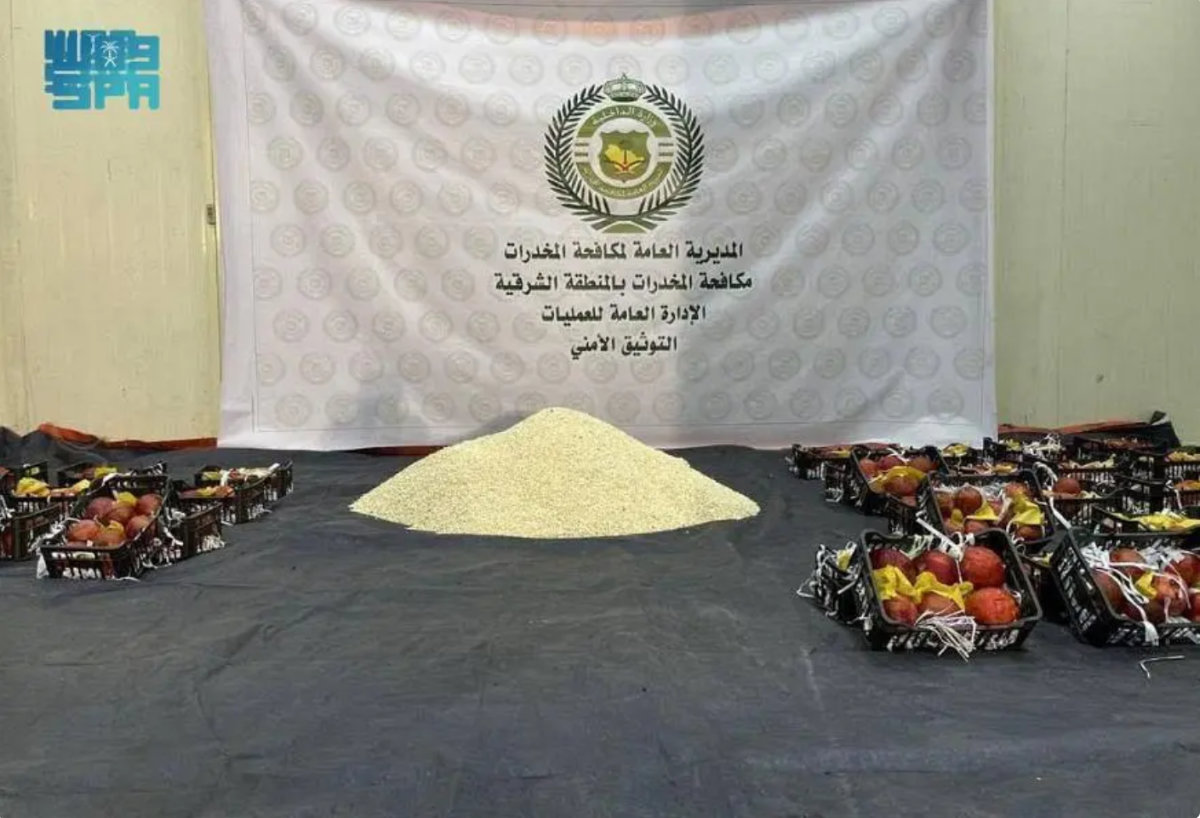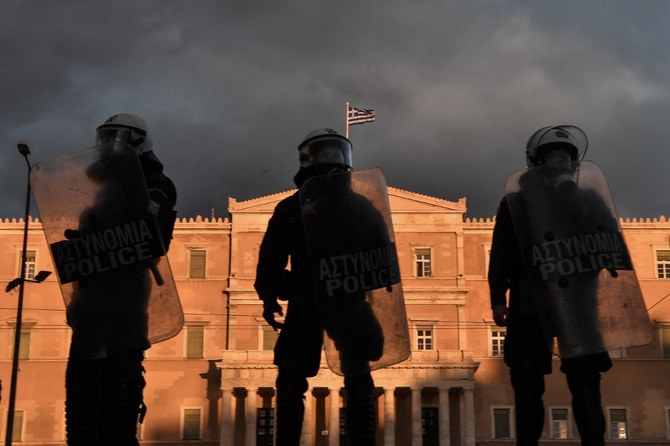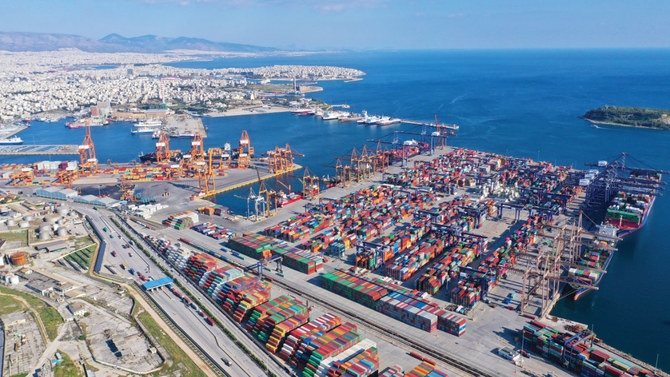ATHENS: The assistance recently provided to Greek authorities by the drug-enforcement agency of Saudi Arabia (GNDC/SA), which led to the discovery of a huge shipment of processed cannabis at Greece’s main port of Piraeus, marks a new chapter in expanding bilateral cooperation between Athens and Riyadh.
The two countries have shown willingness to boost their defense ties, but this specific case shows that cooperation on intelligence issues can be critical.
“The help provided by Saudi Arabia to Greek authorities in seizing tons of cannabis exhibits the potential in exchanging intelligence information for common purposes,” George Tzogopoulos, senior fellow at the Institute of European and International Studies and research associate at the Begin-Sadat Center for Strategic Studies, told Arab News.
The SDOE, Greece’s financial crimes squad, said the drugs were uncovered following a tip-off from the US Drug Enforcement Agency. The shipping container, whose registered contents were three industrial cupcake-making machines, arrived by sea from Lebanon on April 14.

Cooperation between Saudi and Greek anti-narcotics units have resulted in the busting of massive amounts of drugs smuggle from Lebanon. (SPA photo)
It has been scheduled for departure by rail to Bratislava, Slovakia a few days later, passing through North Macedonia, Serbia and Hungary.
Greek authorities raided the container on April 16 and uncovered 4.3 tons of processed cannabis hidden inside a compartment built into a metal tank among the machinery.
According to some estimates, the seized narcotics had a potential street value of €33 million (almost $39.6 million).

Lebanese anti-narcotics police destroy cannabis plants in the village of Bouday, at the eastern Bekaa Valley near the ancient city of Baalbek. (AP)
This is not the first time Greek and Saudi authorities have worked together to seize large quantities of drugs transported out of Lebanon.
In January 2020, the Greek financial crimes squad worked with GNDC/SA to uncover almost 1.3 tons of processed cannabis hidden in a container at Piraeus destined for Misrata, Libya.
“Greece traditionally enjoys warm relations with Arab countries,” said Tzogopoulos.

Drug smugglers keep changing their tactics to stay ahead of anti-narcotics teams around ther world. (SPA photo)
He added: “In this respect, ties with Gulf countries and with Saudi Arabia have been strengthened and they recently reached new heights with the visit of Foreign Minister Nikos Dendias and Defense Minister Nikos Panagiotopoulos to Riyadh. The nature of the developing collaboration allows the two countries to embark on various projects of common interest.”
Intelligence cooperation comes as a natural continuation of blossoming defense ties. In March, six F-15 fighter jets of the Royal Saudi Air Force, their crews and supporting technicians arrived on the Greek island of Crete to take part in a major joint air drill, Falcon Eye 1, over the Mediterranean.
During their recent visit to Riyadh, Dendias and Panagiotopoulos announced the deployment of a Patriot-2 air defense missile system (accompanied by 130 personnel) to help defend Saudi Arabia’s energy infrastructure, repeatedly targeted in ballistic missile and drone attacks carried out by the Iran-backed terrorist Houthi militia in Yemen.



























